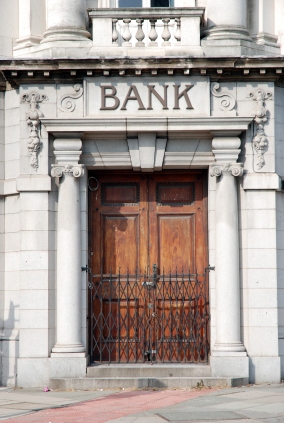Bank Scams
The most common bank scams are online bank scams. First
the scammer steals your logon name and password, and then uses this
information to transfer your money to other accounts and then withdraws the
funds.
To get your logon name and password, scammers have used various strategies.
They can include 'looking over your shoulder' while you are at a public
access point, using phishing techniques, or a Trojan horse.
Phishing comes from the words password and fishing. It involves using emails
that appear to come from your bank and direct you to a scammer's website
that looks very similar to the bank's website, which then prompts you for
your account access information.
The emails make various claims designed to trick you into following links included in the messages. Some emails claim that an important message is waiting for you online, or that online banking has been "locked" due to too many failed login attempts or because of suspected fraudulent activity. Some claim that due to errors detected in the system or changes in procedure, your online banking details must be updated.
The Trojan horse method involves embedding a computer software program onto your computer which then records your keystrokes, with the aim of sending your banking logon name and password back to the scammer.
Bank fraud is becoming very popular with California-based research firm Javelin Strategy and Research revealing that in 2008, identity theft cases numbered close to 10 million, growing by 22% from the previous year.

Types of Bank Scams
The several types of bank scams include:
- Credit card scams
- Phishing
- Skimming
- Bank examiner scam
- Check overpayment scams
- Money mule scam
- ATM scams
- 'Prime Bank Fraud'
Why are They Becoming so Popular?
One of the problems with enforcing bank fraud laws is that it is often treated as a low priority, because the activity can include several countries, involve many unidentified people, is non-violent and usually there are few leads.
The typical bank robber gets away with about $700 and is caught within 24
hours, however the average check scam involves losses of more than $2,000,
and the scammers are rarely caught, and there are more than one hundred
times as many cases as bank robberies.
Remember
The essential steps to protect your computer are:
- Use antivirus software and keep it updated regularly
- Install a personal firewall
- Keep the security updates downloaded for your web browser and operating system
- Keep passwords and PINs safe and don't reveal them to anyone
- Always access your internet banking by typing in the bank's address into your web browser. Never click on a link in an email to go to your online bank
- Don't leave your computer unattended when logging into the internet for banking
- Make sure you log out properly when you finish banking online
-
Check there is small locked padlock or unbroken key
in bottom right of your browser window before accessing the bank site
[the internet address will change from 'http' to 'https' when you have a
secure connection
You can find more information in Wikipedia on
bank scams.
- Home ›
- Bank Scams